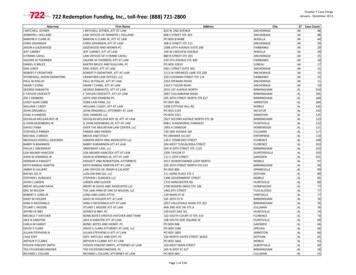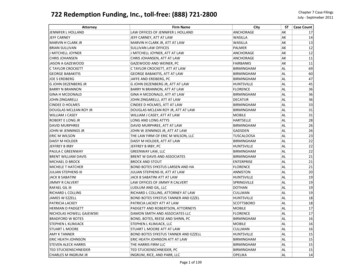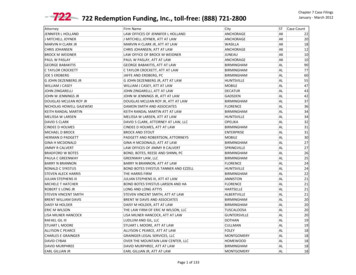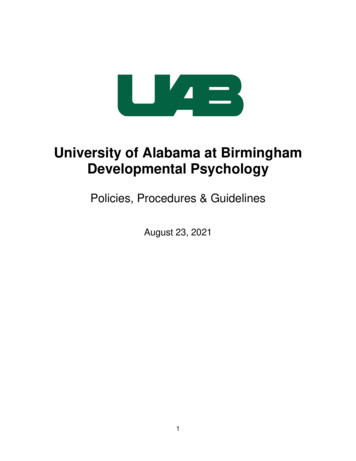
Transcription
University of Alabama at BirminghamDevelopmental PsychologyPolicies, Procedures & GuidelinesAugust 23, 20211
Table of ContentsMission and Goals .3History .3This Handbook .3Administrative Structure .4Mentoring and Advising .4The Research Mentor.4The Director.4Lifespan Developmental Psychology Seminar .4Curriculum .5Coursework .5Research and Teaching Enrollment .6Graduate School Electives .8Other Required Training and Preparation for Lifelong Learning .8Degree Requirements and Associated Procedures .8General Considerations.8Thesis and Dissertation Guidelines .8Progress through the Program .15Progress Benchmarks .15Grades.16Good Academic Standing and Dismissal from the Graduate School .17Program Probation and Dismissal .17Leave of Absence.17The Annual Review Process .17Annual Review by Developmental Psychology Faculty.17Student Funding .18Funding for Admitted Students .18Institutional Training Grants .19Individual Federal and Foundation Fellowships .19Guaranteed Stipend, Tuition, and Fee Support for Graduate Students .20Miscellaneous Policies and Procedures .20Grievance and Appeal Procedures .20Ethical Conduct and Commitment to Diversity .21Other Relevant University Policies .21APPENDIX A. Developmental Psychology Annual Evaluation Form .23APPENDIX B. Research Evaluation Form .33APPENDIX C. Graduate Teaching Assistant Evaluation Form .39APPENDIX D. Memorandum of Agreement for Graduate Traineeships .40APPENDIX E. UAB Center for Clinical and Translational Science Mentoring Contract. .41APPENDIX F. Graduate Student Vacation, Leave, and Holiday Guidelines. .44APPENDIX G. Department of Psychology Policies For Tuition Support .45APPENDIX H. Handbook Revision History .472
Mission and GoalsDevelopmental Psychology is a specialty area of psychology that aims to explain growth, change, andconsistency over the course of the lifespan. Developmental psychologists study a wide range of areas such asbiological, cognitive, social, and emotional processes, to describe, explain and optimize development. Studentswork under the guidance of their faculty research mentor(s) to focus on a particular research area. Training isindividualized to meet student goals.Our mission is to train students to discover and apply basic principles of development across the lifespan in aninterdisciplinary research context. Our premise is that the application of psychological principles ofdevelopment can contribute in important ways to solving problems encountered throughout the lifespan.We support the overall mission of UAB by supporting the “discovery, knowledge dissemination, education,creativity, and the application of groundbreaking solutions” and recognize the shared values of integrity,respect, diversity and inclusiveness, collaboration, excellence and achievement, stewardship, andaccountability.HistoryThe Psychology Department added a Ph.D. concentration in Developmental Psychology in 1991. This newspecialty was the third Ph.D. specialty in Psychology, in addition to Behavioral Neuroscience andMedical/Clinical Psychology. This specialty, like the others, was a campus-wide training program involvingfaculty from Schools across campus dealing with developmental issues at all stages of life (e.g., Pediatrics toGeriatrics). The specialty was approved by the Board of Regents in 1990 with Dr. Norman Bray serving as thefirst program director. The first class was admitted in 1991. Drs. Craig and Sharon Ramey assumeddirectorship of the program from 1995 – 1997, Dr. Michael Windle was the director from 1998 – 2000, Dr. JanWallander served as director from 2000 – 2003, Dr. Karlene Ball served as director from 2003 – 2008, and Dr.Fred Biasini served as director from 2008 – 2018. Dr. Despina Stavrinos is the current director of theprogram.This HandbookThis document serves as a resource for students and faculty in Developmental Psychology at UAB. We aim tokeep this document current and consistent with changing policies in Developmental Psychology, as well aspolicies in the Department of Psychology, College of Arts and Sciences, and Graduate School. Please forwardcomments, corrections, and suggestions for improvement to the Director.Policies described in this Handbook are subject to change. Major changes are typically announced in e-mailand/or program meetings, but students are also encouraged to review the handbook from time to time, and areexpected to review sections that apply to issues that are current for them.Most forms mentioned in this handbook are available on the Graduate School ent-students/academicpolicies-progress/forms), the department’swebsite or the program’s private (Canvas) website. Students receive access to the program’s private site whenthey join the program. Note that web links (URLs) are provided as a convenience but they are managedoutside the Program and are subject to change without notice. Please report “dead” links to the Director.3
Administrative StructureDevelopmental Psychology is one of three concentrations in the Department of Psychology at UAB. Theprogram operates within the academic policies of the Department of Psychology, the UAB Graduate School,and the College of Arts and Sciences.The program office is currently housed in Department of Psychology space in Campbell Hall. The Director hasprimary responsibility for administering the program. The program is supported by the Psychology GraduatePrograms Manager, who also provides support for the Department’s other doctoral concentrations.Policies specific to Developmental Psychology are established by core program faculty and two electedstudent representatives. Student representatives have voting rights on all general program issues, but areexcluded from discussions and votes pertaining to specific students and/or program personnel.Student representatives serve term of two academic years. Nominations are solicited each spring andelections take place each summer. Developmental Psychology faculty and student representatives meet onapproximately on a regular basis, at least once per semester.Mentoring and AdvisingCore faculty members hold primary appointments in the Department of Psychology and work together tomentor and advise students in research and teaching domains. Program faculty informally advise students onmatters pertaining to their training through a number of roles, as instructors, research supervisors, thesis anddissertation committee members, and on an ad hoc basis as issues arise. Students are encouraged to takeadvantage of the broad experience and expertise represented by program faculty at all stages of their progressthrough the program.Roles of specific faculty and faculty committees are described below. In addition, many past students of theprogram find it useful to maintain informal advisory relationships with faculty as they negotiate early stages oftheir post-doctoral careers.The Research MentorEach student has a research mentor who directs the student’s primary research activities, chairs his or herthesis and dissertation committees, and commits to helping the student advance toward readiness forpostdoctoral training or entry-level employment in the area of developmental psychology.Care is taken at admissions to ensure that incoming students are an excellent fit both to the program as awhole and to the interests of their prospective research mentor(s). As part of the application process, studentsare encouraged to identify principal areas of interest as well as a faculty mentor with whom they are interestedin working on research. Once they arrive on campus, students are encouraged to finalize these arrangementsso they can become involved in research at the earliest possible time.The DirectorThe Director serves as an additional advisor to students. He or she meets individually with new graduatestudents upon their arrival at UAB. The Director arranges for an orientation meeting so that first year studentscan become familiar with the Developmental Psychology policies, procedures, and guidelines. The Directormeets with graduate students thereafter as needed to assess progress, provide general advising, and addressdifficulties as necessary. The Director reviews grades and teaching evaluations of all students at the end ofeach semester, and discusses issues with students and their mentors. The Director is available for students todiscuss concerns and/or celebrate their accomplishments at any time.Lifespan Developmental Psychology SeminarThe mandatory Lifespan Developmental Psychology Seminar course (PY710) is an additional venue foradvising, discussion of administrative and general program matters, and learning about topics of relevance to4
the science, practice and profession of developmental psychology. Students are expected to register forPY710 every fall and spring.CurriculumCourseworkRequired courses for the PhD in Psychology (Developmental Psychology Concentration) are shown in Table 1.Electives allow students to acquire specialized knowledge that complements their other coursework andresearch activities. Students are encouraged to seek advice from their research mentors, thesis/dissertationcommittee members, and the Director regarding electives they should take to strengthen knowledge and skillsthat are relevant to their training goals. A list of required courses by term appears in Table 2.The curriculum is reviewed on an ongoing basis. It is subject to change based on quality improvement effortsand pragmatic considerations such as instructor availability. Students are not guaranteed that courserequirements in place when they enter the program will be the only requirements they will need to satisfy inorder to graduate. When changes are made, faculty consider their applicability to students who are already inthe program and an effort is made to avoid changes that would delay progress toward graduation. TheDepartment of Psychology and the program establish the class schedule with the goal of ensuring thatstudents can complete requirements and elective courses in a rational sequence that provides a foundation forresearch and teaching skills and does not delay graduation. Advance planning is critical. Consult the CourseScheduling Plan on the Department of Psychology website for the most up-to-date information on coursescheduling.Table 1. Curriculum Requirements for Developmental PsychologyCurriculum AreaA. Developmental Psychology(21 hours)Elective A (choose 3) B. Research Design andStatistics (15 hours)Elective B (choose 1) C. General Psychology andRelated Disciplines (9 hours)CourseTitlePY 708Developmental PsychologyPY 710*Seminar in Lifespan Developmental PsychologyPY 729Seminar in Adolescent DevelopmentPY 785Psychology of AgingPY 711, PY 712, PY 713, PY 734, PY 741, PY 764, PY 763PY 716Introduction to Statistics and MeasurementPY 716LLab for Introduction to Statistics and MeasurementPY 717Applied Statistical MethodsPY 717LLab for Applied Statistical MethodsPY 719Multivariate Statistical MethodsPY 719LLab for Multivariate Statistical MethodsPY 700 PY 718, PY 727, PY 746Either PY 753 (4 hours) or PY 707 (3 credit hours):PY 619PY 753PY 707Diversity, Equity, and Inclusion in Research and theWorkforceFoundations of Behavioral NeuroscienceBrain and CognitionElective C (choose 2) PY 704, PY 705, PY 706, PY 720, PY 731, PY 740, PY 743, PY 753, PY788, PY 791D. Teaching (6 hours)PY 796Practicum in the Teaching of Psychology**E. Research (30 hours)PY 699Master’s Level Thesis ResearchPY 798Pre-doctoral Dissertation ResearchPY 799Doctoral Dissertation Research* PY 710 is repeated every Fall and Spring semester until graduation.**PY 796 should be taken across two consecutive terms (3 hours per term) in the third year of training. Other electives may be considered with written approval from Director.5CreditHours3133931313133-41436361212
Table 2. Required Developmental Psychology Courses by Term*TermCoursePY 708PY 716PY 716 LPY 717PY 717 LPY 619TitleCredit HoursDevelopmental Psychology3Fall of Year 1Introduction to Statistics3Lab for Introduction to Statistics1Spring of Year 1Applied Statistical Methods3Lab for Applied Statistical Methods1Diversity, Equity, and Inclusion in Research1and the WorkforceFall of Year 2PY 719Multivariate Statistical Methods3PY 719 LLab for Multivariate Statistical Methods1Fall of Year 3PY 796Practicum in the Teaching of Psychology3Spring of Year 3PY 796Practicum in the Teaching of Psychology3*Additional required courses are scheduled every year or every other year. Consult the Course SchedulingPlan on the UAB Psychology website for details. There are also research enrollment requirements, which aredescribed in the next section.Research and Teaching EnrollmentResearch activities begin in the first semester of enrollment, and students are continuously involved inresearch until graduation. Teaching as the lead instructor for a course begins later, typically in the spring termof the third year. The program documents student engagement and performance in research and teachingactivities through enrollment in dedicated courses and regular evaluations. Details regarding enrollment inresearch and teaching practicum credits appear below:Research. Students are strongly encouraged to register for at least 1 credit hour of research during eachacademic term, beginning with the Fall semester of Year 1 and continuing until the student graduates. Coursenumbers depend on the student’s progress with respect to the master’s and dissertation benchmarks as shownin Table 3.Table 3. Research Course Enrollment GuidelinesPY 698 Premaster’s Degree Graduate ResearchBefore admission to candidacy for the MAPY 699 Master’s Level Thesis ResearchAfter admission to candidacy for the MA, and untilthe degree is awarded. 6 hours are required forthe degree.PY 798 Predoctoral Degree Graduate ResearchAfter the MA is awarded and before admission tocandidacy for the PhD.PY 799 Doctoral Dissertation ResearchAfter admission to candidacy for the PhD, anduntil the degree is awarded. 12 hours are requiredfor the degree.Students admitted with a master’s degree should begin with PY 798. There are multiple sections of thesecourses, but students in Developmental Psychology should always register for the section that is associatedwith the Director. Other sections are reserved for students in the other Psychology doctoral concentrationareas.Additional hours of research may be taken in any term to meet minimum enrollment requirements, whichare currently 9 semester hours in the Fall and Spring and 5 hours in the Summer. Depending on the source ofthe student’s funding, different enrollment requirements may apply.The research mentor serves as the supervisor for these research credits. Students and mentors are expectedto keep in close contact, set reasonable timelines and goals, and work together to ensure steady progress.Progress benchmarks, described later in this document, provide an additional framework for gauging progress.6
A Research Evaluation Form must be completed by the research mentor, signed by the student, and submittedat the end of each term beginning with Fall of Year 1. A copy of this evaluation form is provided in Appendix B.Students do not receive a passing grade in their research “course” until the required evaluation is submitted.Students engaged in research with additional faculty should discuss this activity with the Director (includingtheir research mentors), and may submit evaluations from these additional supervisors to be placed on file andshared during the student annual review, described later in this document. A student with thesis or dissertationco-chairs should request and submit separate evaluations from each chair.Teaching Practicum. The preparation and actual experience in undergraduate classroom teaching is animportant aspect of preparing graduate students for a professional career in Developmental Psychology. Sixcredit hours of PY 796, Practicum in the Teaching of Psychology, are required in the DevelopmentalPsychology Program. It is recommended that students complete this practicum in his/her third year; however,second year students may register with approval from their research mentor and the Director.Special note: Some students are awarded Graduate Teaching Assistantships for their financial support. Pleasenote that these teaching assignments do not count towards your requirement for the PY 796 Teaching Practicumcoursework.Steps Prior to Teaching Practicum. The purpose of PY 796 Teaching Practicum is to offer students a supervisedlearning experience where they work with a faculty member to acquire and practice the skills necessary forcompetent instructional delivery and effective teaching.The teaching practicum must be completed over the fall and spring terms of the same academic year. Studentscomplete the first part of PY796 (learning about pedagogy/serving as TA) in the fall term and the second partof PY796 (teaching the course on their own) in the spring term. Prior to the fall semester of the third year, students should meet with the Director of UndergraduateStudies, Dr. Maria Hopkins (mhopkins@uab.edu), about selecting a course to teach in thespring. Students should contact Dr. Hopkins via email no later than July 1 prior to the academic year inwhich they wish to complete the practicum.Dr. Hopkins will work with students to arrange for them to shadow and serve as a Teaching Assistantfor a UAB Psychology faculty member who is teaching the course they are interested in during the fallsemester. Students teaching for the first time typically teach PY212. Other courses which are related tothe student’s teaching interests, such as PY216 or PY101, may also be arranged with approval of theDirector, the course instructor of the selected course, and Dr. Hopkins.Fall Semester of Practicum Year (Take 3 credit hours of PY 796). PY 796 – Part 1 students will be involved incourse planning and implementation as well as assessment of students, as requested by the course instructorin the course they shadow. PY 796- Part 1 students may assist the instructor with group activities, lead a lessonor activity, tutor students, grade assignments, or other related activities. The instructor will determine what’spedagogically best for the student in each class. PY 796 – Part 1 students will also conduct 1-2 lectures in the course that they shadow. Students will begiven feedback by the course instructor and by Dr. Hopkins. PY 796 – Part 1 students are expected to meet with Dr. Hopkins during the fall semester to discusspedagogy, assessment, syllabus development, etc. Students will begin assembling a Teaching Portfolioto be used when they teach the course on their own in the spring semester. The portfolio will include acomplete syllabus, lesson plans and one exam.Spring Semester of Practicum Year (Take 3 credit hours of PY 796). PY 796 – Part 2 students will haveresponsibility for teaching an undergraduate course on their own. The course will be capped at maximum 30students. Dr. Hopkins will observe at least two class periods, take notes, and provide the student with feedback.7
PY 796 – Part 2 students are expected to meet with Dr. Hopkins during the spring term to discuss theteaching experience. Following the spring term, students are expected to review the course evaluationswith Dr. Hopkins.Graduate School ElectivesThe UAB Graduate School offers elective courses that focus on skills and tasks that are relevant to studentsacross a variety of disciplines, such as teaching and grant writing. Check the UAB Graduate School ProfessionalDevelopment Program for more information.Other Required Training and Preparation for Lifelong LearningAs a research-intensive university and academic health center, UAB and its associated health care facilities offermany opportunities for learning outside of regularly-scheduled classes. Students are encouraged to develophabits of lifelong learning while in graduate school by attending and participating in colloquia, journal clubs,workshops, and intensive courses as such opportunities arise. In addition to the course requirements, studentsmust complete the following before graduation: Students must submit a grant fellowship application before their dissertation proposal. Students areencouraged to consult with their mentor and the Director for opportunities to pursue such funding. Note:The Graduate School provides a monetary incentive for students who apply for individual fellowshipsfunded by extramural agencies through the Graduate School Individual Fellowship Incentive Program.Students must complete a review paper in the form of a Psychological Bulletin or PsychologicalReview article prior to admission to candidacy for the doctoral degree. This review paper must beapproved by the dissertation committee.All students are strongly encouraged to have at least two papers published or in press, prior to theirgraduation.Finally, to keep abreast of developments in their field, students are strongly encouraged to join and activelyparticipate in local, national and international professional and scientific organizations that are mostrelevant to their interests. Students must present at a national scientific conference by the end of their third yearin the program, and must be first author for the conference presentation.Degree Requirements and Associated ProceduresGeneral ConsiderationsAlthough UAB does not offer a terminal master’s program in Psychology, all Developmental Psychologystudents complete a master’s thesis and are awarded the M.A. as part of their progress through the doctoralprogram. Formal steps for completion of the master’s and doctoral degrees are summarized below. Asubstantially higher level of performance and degree of independence is expected at the doctoral vs. master’sdegree level.Students are responsible for reviewing and following the steps described below and in the GraduateCatalog (http://catalog.uab.edu/graduate/; e/).Students should also be aware of and meet Graduate School deadlines for submission of required forms andcompletion of associated steps, and allow time for processing of forms in the Psychology GraduatePrograms Office. Consult with the Graduate Programs Manager and Director if questions arise. All formssubmitted to the Graduate School by Psychology graduate students must be submitted through the PsychologyGraduate Programs Manager.Thesis and Dissertation GuidelinesAlthough there is no formal requirement that students conduct their thesis or dissertation on a specific topic, itis understood that a student’s work will make strong connections to the field of Applied Developmental Science(Fisher et al., 1993) owing to the applied and lifespan focus of the Developmental Psychology concentration.Applied Developmental Science is defined as the following (Fisher et al., 1993; pg 4):8
“Applied developmental science involves the programmatic synthesis of researchand applications to describe, explain, intervene, and provide preventive andenhancing uses of knowledge about human development. The conceptual base ofapplied developmental science reflects the view that individual and familyfunctioning is a combined and interactive product of biology and the physical andsocial environments that continuously evolve and change over time. Applieddevelopmental science emphasizes the nature of reciprocal person- environmentinteractions among people, across settings, and within a multi-disciplinary approachstressing individual and cultural diversity. This orientation is defined by threeconjoint emphases: Applied: Direct implications for what individuals, families, practitioners, andpolicy makers do. Developmental: Systematic and successive changes within human systemsthat occur across the lifespan. Science: Grounded in a range of research methods designed to collectreliable and objective information systematically that can be used to test the validityof theory and application.”Thesis and Dissertation Defined The thesis and dissertation each consist of two parts: a) the written document and b) the oralpresentation and public defense. Its purpose is to demonstrate that the candidate has earned his/her degree through independentscholarship that has made a novel scientific contribution to the field a
Aug 23, 2021 · Developmental Psychology is a specialty area of psychology that aims to explain growth, change, and consistency over the course of the lifespan. Developmental psychologists study a wide range of areas such as biological, cognitive, social, and emotional processes
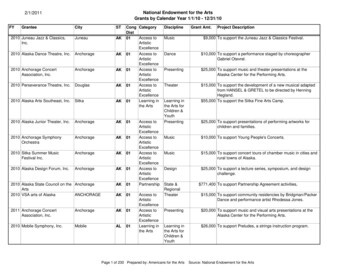

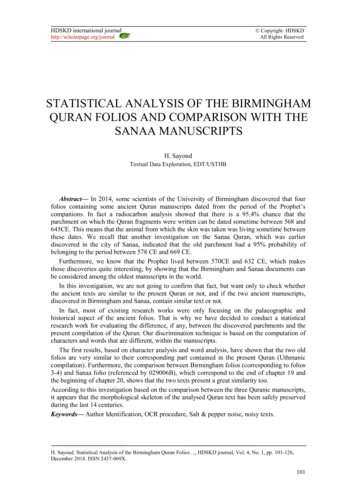
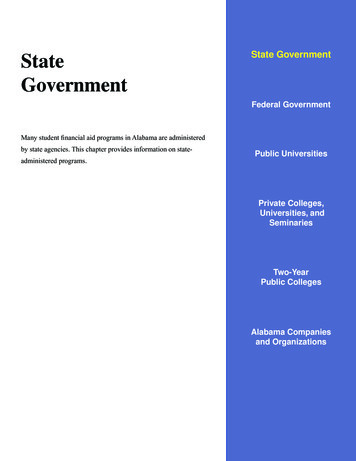

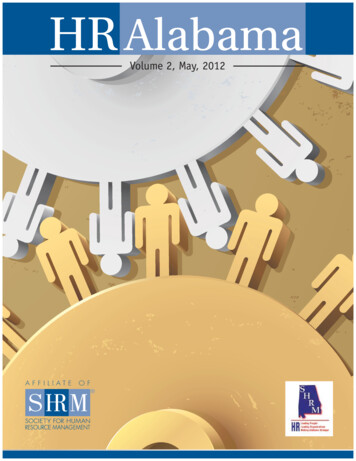
![Letter from Birmingham Jail (1963) [Abridged]](/img/2/1963-mlk-letter-abridged.jpg)

